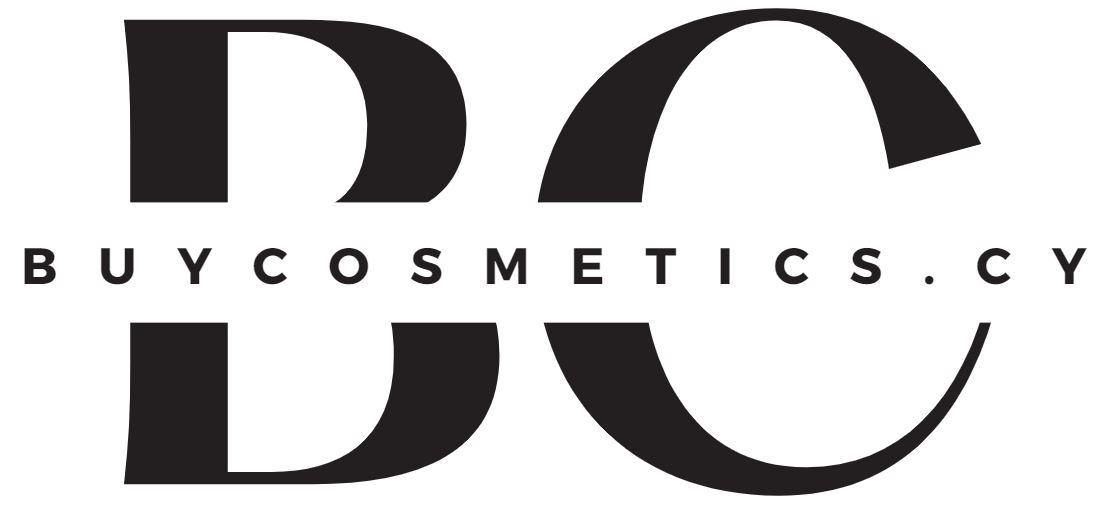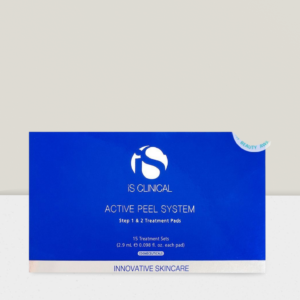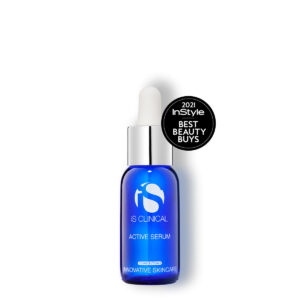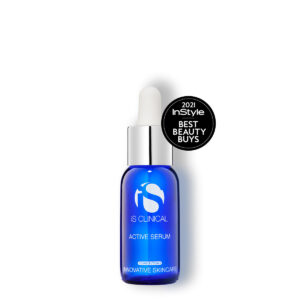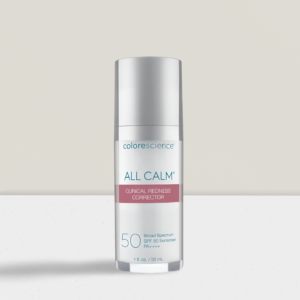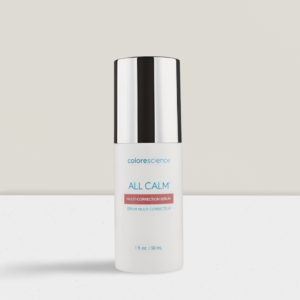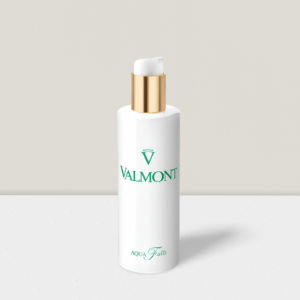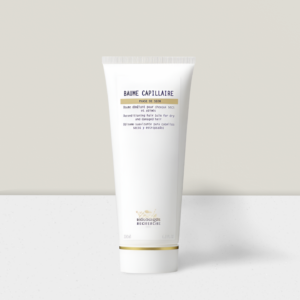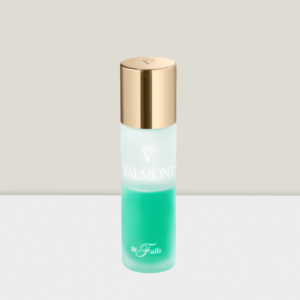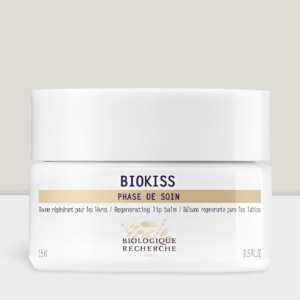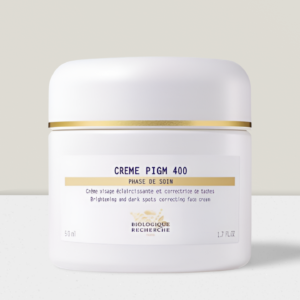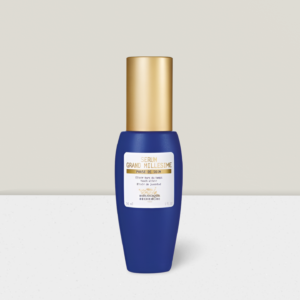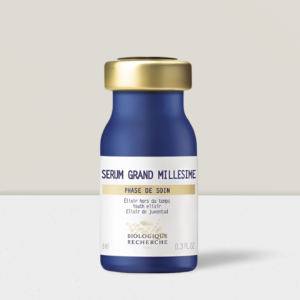The Cuisine of Beauty: Unraveling the Connection Between Diet and Skincare
Dishing up the Main Course: An Overview of the Topic
Beautiful skin is often seen as a reflection of overall health. While we’re used to slathering on creams, serums, and oils, there’s a whole other facet to skin health that often gets overlooked — diet. Just as certain foods can help maintain our heart health, boost our memory, or support our immune system, there are also foods that can enhance our skin’s health.
The Secret Ingredient: Importance of Diet in Skincare
It’s been said that ‘beauty is only skin deep’, but the truth is, it goes much deeper than that. The state of our skin is often a mirror, reflecting our inner health and dietary habits. Just as malnourishment can lead to dull, lifeless skin, a balanced, nutrient-rich diet can support skin health, lending it a natural radiance that’s hard to replicate with cosmetics.
By understanding the vital role diet plays in skincare, we can ‘feed’ our skin, nourishing it not just on the surface, but from within. This sets the stage for a holistic approach to skincare, where we view and treat our skin as an integral part of our overall health. Now, let’s dive deeper into this fascinating topic, peeling back the layers of the relationship between diet and skin health.
The Intricate Food-Skin Symphony: Understanding the Connection Between Diet and Skin Health
Feasting for Radiance: How the Foods We Eat Impact Our Skin
Imagine your skin as an artist’s canvas. The foods you consume are the palette of colors you use to create a masterpiece. Like hues of color, different types of foods can dramatically alter the final image. Consuming a variety of nutrient-rich foods paints a picture of health and vibrancy. Conversely, a diet heavy in processed, high-sugar foods may contribute to a canvas that is dull, blemished, or prematurely aged.
The reason behind this is clear as glass — our skin cells are continually renewing, and the nutrients we consume play a critical role in this process. A deficiency or excess of specific nutrients can affect cellular function and skin health. For example, essential fatty acids are required to maintain the skin’s natural oil barrier, and antioxidant-rich foods can help ward off oxidative stress that leads to premature aging.
Anatomy of the Skin: Understanding the Skin’s Structure and Nutritional Needs
To truly understand the relationship between diet and skin health, let’s take a quick journey into the skin’s structure. Our skin consists of three layers:
- Epidermis: This outermost layer is responsible for skin’s tone and provides a barrier to infection and harmful substances. Essential nutrients like Vitamin C and E play a significant role in maintaining the health of this layer.
- Dermis: This middle layer is home to connective tissues, hair follicles, and sweat glands. It needs a good supply of proteins like collagen and elastin for firmness and elasticity.
- Subcutaneous fat: This bottom layer serves as insulation, conserves body heat, and acts as a shock absorber. It also stores essential nutrients and fats that are responsible for the skin’s suppleness.
The nutritional needs of these layers vary. Still, they all require a good mix of vitamins, minerals, antioxidants, and healthy fats to function optimally. By feeding our skin from the inside out, we can address skin concerns at their root and help pave the way to a radiant complexion. Stay tuned as we delve into the specific nutrients and their effects on the skin.
Nutrition Paintbox: Specific Nutrients and Their Effects on Skin
Vitamins: The ‘A, B, C’s’ of Skincare
These micronutrients play various roles, all essential for maintaining skin health:
- Vitamin A: Known as the “skin vitamin,” it promotes cell production and growth, giving the skin a youthful appearance. It’s found in foods like sweet potatoes, carrots, and spinach.
- Vitamin C: A powerful antioxidant, it aids in collagen production and fights free radicals, helping to maintain skin’s elasticity and vibrancy. Find it in citrus fruits, strawberries, and bell peppers.
- Vitamin E: It aids in skin healing and protects against UV damage. Nuts, seeds, and leafy greens are good sources.
- Vitamin D: Essential for skin cell growth and repair, it’s primarily obtained through sunlight, though fatty fish and fortified dairy also provide this vitamin.
- Vitamin K: It plays a vital role in the body’s healing process, crucial for repairing skin and reducing scars, dark spots, circles, and puffiness under eyes. It can be found in leafy greens, broccoli, and prunes.
- B-complex vitamins: They aid in skin cell renewal and growth. Avocado, eggs, and legumes are rich in B vitamins.
Minerals: The Bedrock of Healthy Skin
Like vitamins, minerals play an essential role in skin health:
- Zinc: It plays a significant role in wound healing, protects against UV damage, and has anti-inflammatory properties. Zinc can be found in oysters, red meat, and poultry.
- Selenium: This antioxidant mineral helps protect the skin from damage and delays aging by protecting skin quality and elasticity. Foods like Brazil nuts, fish, and whole wheat are excellent sources.
Fatty Acids: Oils of Life
- Omega-3: They help maintain the skin’s lipid barrier and fight inflammation. Fatty fish, walnuts, and chia seeds are rich in Omega-3s.
- Omega-6: They aid in skin cell regeneration and help maintain skin’s moisture and firmness. Sources include vegetable oils, nuts, and seeds.
Antioxidants: The Free Radical Fighters
Antioxidants help neutralize harmful free radicals, protecting our skin from environmental stressors like sun damage and pollution. Foods rich in antioxidants include berries, dark chocolate, and green tea.
Hydration: The Fountain of Youth
Adequate hydration maintains the skin’s elasticity, reduces the appearance of wrinkles, and flushes out toxins. While drinking sufficient water is important, you can also hydrate your skin through foods with high water content, like cucumbers, watermelon, and oranges.
Stay tuned as we dish out the best foods that serve up these skin-loving nutrients in spades!
Foodie Favorites: Foods That Promote Healthy Skin
Fruits and Vegetables: The Colorful Palette of Skincare
Packed with vitamins, minerals, and antioxidants, fruits and veggies are essential for skin health. Here’s the lowdown on how they make your skin glow:
- Berries: Laden with antioxidants and vitamin C, they fight free radicals and help produce collagen.
- Carrots: Rich in beta-carotene, which the body converts to Vitamin A, they aid in cell production and growth.
- Spinach: Full of Vitamins A, C, E, and K, it covers all bases for your skin’s nutritional needs.
- Bell Peppers: A great source of Vitamin C, they contribute to healthy, radiant skin.
Lean Proteins: Building Blocks of Skin Health
Protein is essential for tissue repair and the construction of new tissue. Skin, hair, nails – every cell needs protein.
- Fish: Besides being a great source of protein, fatty fish like salmon and mackerel are packed with Omega-3 fatty acids, crucial for maintaining skin health.
- Chicken: Lean, high in protein, and full of vitamins like B3 and B6, chicken aids in fighting off skin inflammation.
- Eggs: They offer a complete amino acid profile, along with various nutrients like Vitamin A and selenium, vital for skin health.
Whole Grains: Wholesome Goodness for Skin
Whole grains are packed with fiber, helping to regulate your blood sugar levels and thus controlling the production of acne-inducing hormones.
- Brown Rice: It’s full of antioxidants, vitamins, and magnesium which help reduce acne and other skin disorders.
- Quinoa: Rich in ecdysteroids, quinoa can aid in skin cell repair and rejuvenation.
- Oats: Containing zinc, oats help in reducing inflammation and killing the acne-causing bacterial action.
Healthy Fats: Lubricating Your Skin from the Inside Out
Healthy fats are crucial for maintaining your skin’s natural oil barrier, critical in keeping skin hydrated, plumper, and younger-looking.
- Avocados: Loaded with beneficial fats and Vitamin E, avocados can help keep your skin flexible and moisturized.
- Walnuts: They offer both Omega-3 and Omega-6 fatty acids, necessary for skin health.
- Chia Seeds: Tiny but mighty, chia seeds have a massive amount of Omega-3 fatty acids, which are excellent for maintaining skin health.
By incorporating these foods into your daily diet, you’re not just treating your taste buds but also feeding your skin with the essential nutrients it needs to stay healthy and vibrant.
The Flip Side: Foods to Avoid for Healthy Skin
While some foods help us glow, others might have the opposite effect. Here’s a look at the foods that may cause trouble for your skin.
The Sweet Trap: Sugar and High-Glycemic Foods
Sugar might taste heavenly, but it can cause havoc on your skin. Why so?
- Inflammation: High-sugar diets can lead to increased inflammation, potentially leading to skin conditions like acne and rosacea.
- Collagen and Elastin: Sugar can attach to proteins in our bodies, a process known as glycation, which can damage collagen and elastin, protein fibers that keep skin firm and elastic.
- Insulin Levels: High-glycemic foods like pastries, sodas, and candies cause a rapid spike in blood sugar and insulin levels, leading to increased skin oil production and acne development.
Alcohol: The Dehydrating Effect
Though it may help you unwind, alcohol can be tough on your skin:
- Dehydration: Alcohol is a diuretic, causing you to lose more water than you take in, leading to dehydrated skin, which can appear dull and show wrinkles more prominently.
- Inflammation: Alcohol can trigger inflammation throughout the body, including the skin, leading to redness, puffiness, and potentially exacerbating conditions like psoriasis and rosacea.
Processed Foods: Convenience at a Cost
Processed foods may save time but can cost your skin its health:
- Trans fats: Found in many processed foods, trans fats can cause inflammation, leading to skin conditions like acne.
- High Sodium: Processed foods are often high in sodium, which can leave your skin looking puffy and bloated.
Dairy Products: Not Everyone’s Best Friend
For those who are lactose intolerant or sensitive, dairy products can cause skin issues:
- Digestive Troubles: Lactose intolerance can lead to digestive issues that manifest as skin problems, including acne, rashes, and redness.
- Hormones: Some research suggests that hormones in dairy products can stimulate oil glands in the skin, potentially leading to acne.
Remember, every person is unique, and so is their reaction to different foods. Listen to your body, observe changes in your skin, and tweak your diet accordingly. Good skin is a reflection of good health. So, make dietary choices that promote overall well-being.
The Role of Diet in Managing Specific Skin Conditions
Understanding the connection between what we eat and how our skin reacts can be pivotal in managing certain skin conditions. Let’s delve into how diet affects conditions like acne, eczema, psoriasis, and premature aging.
Acne and Diet: More Than Just Chocolate
While the old myth that chocolate directly causes acne has been debunked, some other dietary factors can influence this common skin condition:
- High-Glycemic Foods: Foods that cause blood sugar spikes can stimulate the body to produce more insulin, leading to increased oil production and clogged pores.
- Dairy: While not a direct cause for everyone, some people find a correlation between their dairy intake and acne flare-ups, potentially due to hormones found in milk products.
Eating for Eczema Relief
While eczema is primarily managed through topical treatments, diet can play a supportive role:
- Omega-3 Fatty Acids: Foods rich in Omega-3s, like fish and flaxseeds, can help reduce inflammation associated with eczema.
- Probiotics: Fermented foods and drinks, rich in probiotics, can improve gut health, potentially easing eczema symptoms.
The Psoriasis-Diet Connection
While there’s no ‘psoriasis diet’, certain dietary changes may help manage symptoms:
- Weight Management: Maintaining a healthy weight can help reduce psoriasis severity and increase the efficacy of treatments.
- Anti-inflammatory Foods: Consuming anti-inflammatory foods like berries, fatty fish, and leafy greens might help reduce inflammation and alleviate psoriasis symptoms.
Diet and Premature Aging: Can We Eat Our Way to Younger Skin?
While we can’t turn back time, certain dietary choices can help slow down the skin aging process:
- Antioxidants: Foods rich in antioxidants (think colorful fruits and vegetables) can help protect the skin from damage by free radicals, which are known to accelerate aging.
- Healthy Fats: Foods rich in healthy fats, like avocados and nuts, can help keep skin supple and moisturized, reducing the appearance of wrinkles.
- Hydration: Drinking plenty of water helps maintain skin elasticity, contributing to a youthful appearance.
Remember, while diet is important, it’s just one piece of the skincare puzzle. Always consult with a healthcare provider or a dermatologist to manage these skin conditions effectively.
Practical Tips for Incorporating Skin-Healthy Foods into Your Diet
Armed with the knowledge of which foods can help nourish our skin, the next step is figuring out how to incorporate these power-packed ingredients into our daily meals. Let’s share some practical tips on meal planning, healthy swaps, and maintaining a balanced diet for optimal skin health.
Meal Planning and Preparation Tips: Eat Your Way to Radiant Skin
Whether you’re a seasoned home cook or new to the kitchen, these meal planning and preparation tips can help you create delicious, skin-nourishing meals:
- Plan Your Week: Dedicate some time each week to plan your meals. Ensure you’re including a variety of fruits, vegetables, lean proteins, and whole grains to cover all your skin’s nutritional needs.
- Prep in Advance: Cut down on cooking time during busy weekdays by prepping ingredients in advance. Chop veggies, marinate proteins, and pre-portion snacks over the weekend.
- Cook in Batches: Prepare meals in larger quantities and store leftovers in the fridge or freezer for quick, healthy meals on demand.
Healthy Swaps for Common Foods: Trade Up for Your Skin’s Sake
Sometimes, it’s the small changes that can make a big difference. Here are some easy, skin-healthy swaps for common foods:
- Whole Grains Over Refined: Swap refined grains like white bread and pasta for whole grain alternatives. They’re higher in fiber, which can help regulate blood sugar and prevent acne flare-ups.
- Hydrate with Water, Not Sugary Drinks: Trade in sugary sodas and juices for water or herbal teas. Proper hydration can support overall skin health.
- Opt for Healthy Fats: Choose avocados, nuts, and seeds over unhealthy fats found in fried and processed foods. These healthy fats contribute to skin hydration and elasticity.
Importance of a Balanced and Varied Diet: Don’t Put All Your Eggs in One Basket
While it might be tempting to focus on just a few ‘superfoods’, remember that no single food can provide all the nutrients your skin needs to thrive. Aim for a balanced, varied diet that incorporates a wide range of nutrient-dense foods:
- Balance: Strive to include carbohydrates, proteins, and healthy fats in your meals for balanced nutrition.
- Variety: Regularly switch up the fruits, vegetables, proteins, and grains in your diet. This ensures your skin benefits from a wide array of nutrients.
- Mindfulness: Pay attention to how your body and skin react to different foods. If a particular food triggers skin issues, consider avoiding it.
By integrating these practical tips into your lifestyle, you’re taking a significant step towards a healthier diet and, by extension, healthier skin.
Conclusion
We’ve come to the end of our delicious journey exploring the role of diet in skincare. Let’s take a moment to revisit our key points and wrap up with some final thoughts on the vital connection between what we eat and the health of our skin.
Recap of the Main Points Discussed
In our exploration of diet and skincare, we have:
- Established the connection between diet and skin health, explaining how the foods we eat directly impact the condition of our skin.
- Explored the specific nutrients that are crucial for skin health, including vitamins, minerals, fatty acids, antioxidants, and the importance of hydration.
- Identified the foods that promote healthy skin, such as fruits, vegetables, lean proteins, whole grains, and healthy fats.
- Discussed the foods to avoid for healthy skin, especially if you’re dealing with skin conditions like acne or eczema.
- Provided practical tips for incorporating skin-healthy foods into your diet, including meal planning tips, healthy food swaps, and the importance of a balanced diet.
Encouragement for Readers to Consider Their Diet as Part of Their Skincare Routine
We often focus solely on the creams and potions we apply to our skin, but this exploration of the role of diet in skincare reveals that the path to radiant skin also lies in our kitchens and dining tables.
We encourage you to take a holistic approach to skincare by considering your diet as a critical part of your skincare routine. Start by making small changes, like including more fruits and vegetables in your diet or swapping out sugary drinks for water. Every healthy choice you make can contribute to healthier, more radiant skin.
Final Thoughts on the Integral Role of Diet in Skincare
In conclusion, while a good skincare routine is crucial, our diet plays an equally important role in maintaining the health and vitality of our skin. A balanced, nutrient-dense diet not only fuels our bodies but also nourishes our skin from within, promoting a natural glow that no amount of makeup can replicate.
Our skin is a reflection of our overall health, and diet plays a significant role in that picture. So, let’s fill our plates with nutrient-rich foods that feed our skin and make us shine from the inside out!
The article was written by Skin Expert and Mentor – Christina Korouchtsidi
